Why an apple a day keeps the doctor away
Sure an apple a day keeps the doctor away, but do you really know why? Well, for one, apples contain quercetin, a flavanoid and pectin. Flavanoids are known for their anti-inflammatory and antioxidant effects, while pectin is a soluble fiber, which not only fills you up but keeps you regular. Together, they’re responsible for the amazing health benefits of apples. But that’s not all. “Apples are a wonderful, portable food,” says Seattle-based registered dietitian Ginger Hultin, RDN, spokesperson for the Academy of Nutrition and Dietetics and owner of ChampagneNutrition. Eat one every day and see all the powerful ways this fruit can boost your health. Want to amp up the effects with some fun physical exercise? Pick your own—here are the best places to go apple picking in every state.
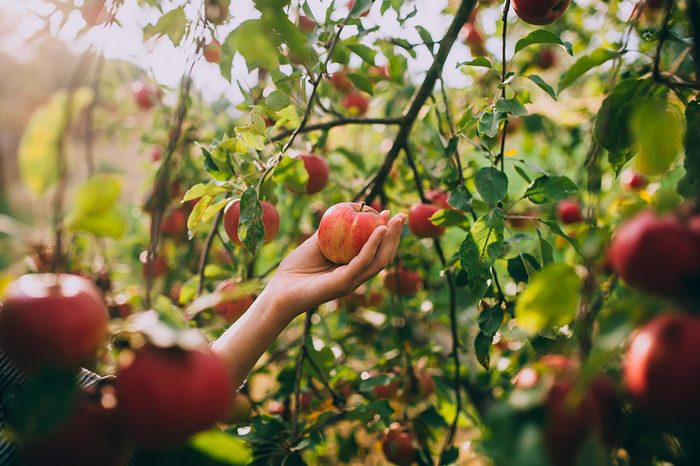
Health Benefit: Apples prevent some cancers
Italian researchers reviewed a number of studies to determine whether eating apples could prevent cancer, specifically breast, lung, stomach, and colon cancer. The evidence was strongest for lung cancer—those who ate more apples were less likely to get lung cancer, but those protective properties only applied to people who smoked or were former smokers. There was also evidence to suggest that eating apples also lowered your risk of developing colon, breast, and digestive tract cancers like stomach cancer. Other studies have found that eating more fruits can protect people from colon and stomach cancer.
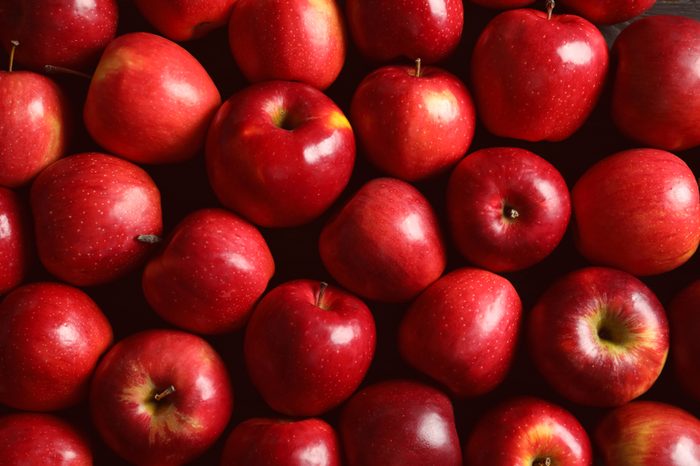
Health Benefit: Apples stabilize blood sugar
Apples are loaded with soluble fiber, which slows the digestion of food and the entry of glucose into the bloodstream. Chinese researchers found that eating both apples and pears reduced a person’s chances of developing diabetes by 18 percent—and adding one extra serving a week lowered the risk by an extra 3 percent. Eating fruit is good, but you’ll also want to know these 8 sneaky things that raise your blood sugar levels.
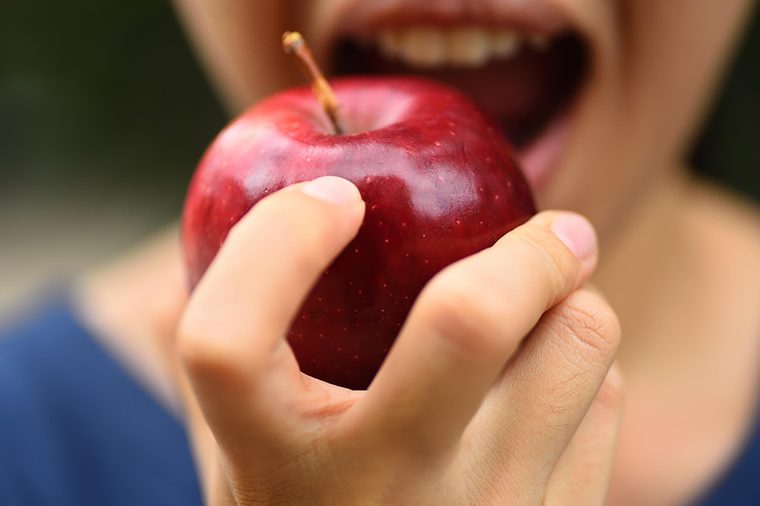
Health Benefit: Apples boost gum health
Apples have long been called nature’s toothbrush. Though eating an apple doesn’t actually clean your teeth, biting and chewing one stimulates the flow of saliva, which reduces tooth decay by lowering the level of bacteria in the mouth, Spanish researchers found.
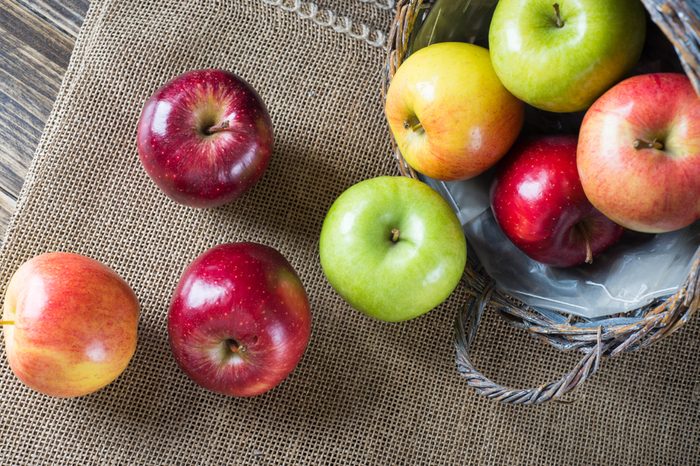
Health Benefit: Apples may prevent strokes
A review of 20 studies found that for every 200 grams of fruit (especially fiber-rich apples) people ate per day they lowered their risk of strokes by 32 percent. Another study found that eating apples (along with other fruits, like grapes and blueberries) lowered cholesterol and helped regulate blood pressure.
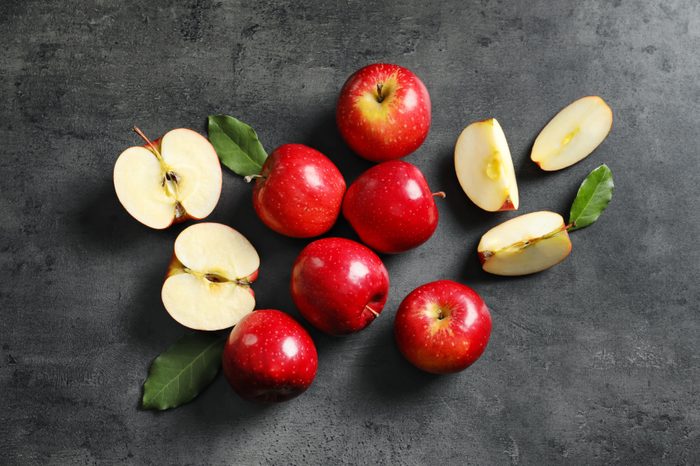
Health Benefit: Apples help you lose weight
Apples are packed with fiber and water and contain complex carbs, so you digest them more slowly and feel fuller after eating them. One very large study that followed roughly 133,000 men and women over 24 years found that those who ate the highest quantities of high-fiber fruits like apples and pears gained the least amount of weight. Your practitioner may clue you into the benefits of eating fruit, but here are 50 other things your doctor wishes you knew about losing weight.

Health Benefit: Apples fend off heart disease
Apples are rich in a variety of plant chemicals, especially if you eat the skin. “Apples are high in fiber so they are linked to reducing heart disease by potentially lowering cholesterol levels,” says Hultin. Chinese researchers also found that eating apples lowered triglycerides.
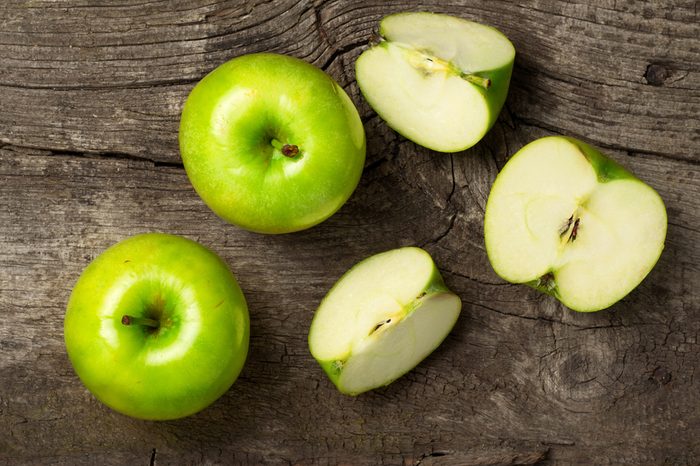
Health Benefit: Apples fight high cholesterol
Apples are low in calories and high in the soluble fiber pectin, which helps lower artery-damaging LDL blood cholesterol levels, British and Italian researchers found. While apples may be good for you, be sure you also know about the 10 worst foods for your cholesterol.
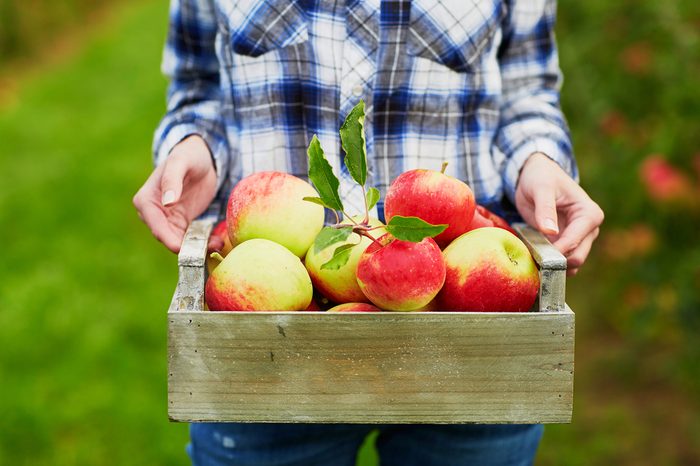
Go organic if you’re concerned about pesticides
“There are no known health risks of apples,” says Hultin, but if you’re concerned about pesticide residue from the conventionally grown varieties, buy organic. And wash fruit carefully before eating—whether you’ve bought the conventional apple or the organic one. (Have leftover apples? This healthy baked apple recipe is simply irresistible.)
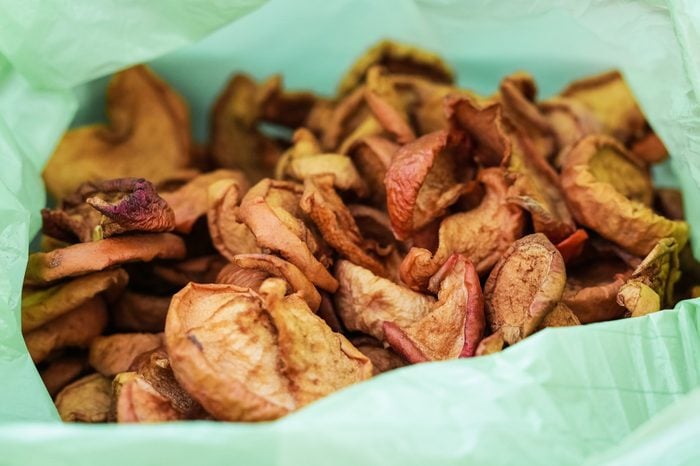
Opt for dried apples without preservatives
Sulfur dioxide is often added to dried apples to preserve moistness and color; it can provoke allergic reactions if you’re allergic to it. Look for dried fruit without sulfites (it’ll say on the label), or dry apples on your own. “Dried apples are a great snack and deserve a place in the diet if someone wants to eat them,” says Hultin.
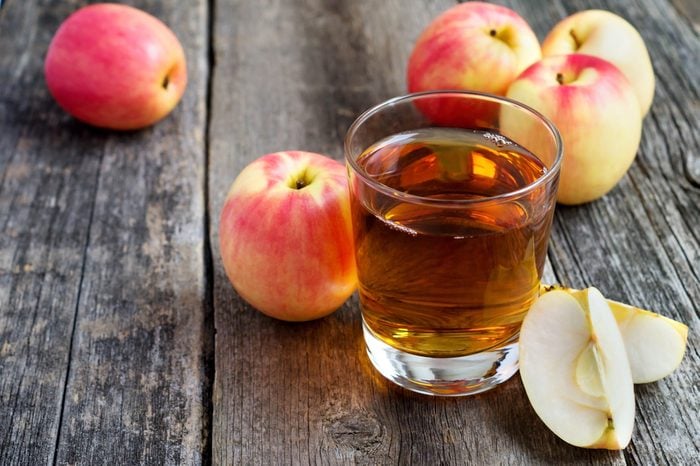
Avoid unpasteurized apple juice
E. coli and cryptosporidium lurk in unpasteurized apple juice or apple cider, which you can find at roadside stands, farmers markets, or country fairs—and give you food poisoning. Children, pregnant women, the elderly, and people with weakened immune systems should always stick to pasteurized juices and cider, but it may be best for all of us to do the same, Hultin notes. Check the label.
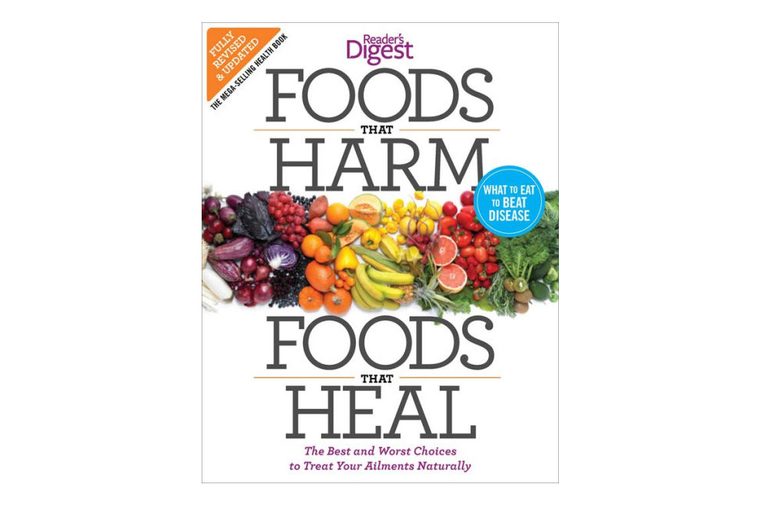
More hidden health benefits in your favorite foods:
Our newly updated resource, Foods that Harm, Foods that Heal, covers 175 foods and the 100 conditions they harm or heal; available on Amazon.com and wherever books are sold).